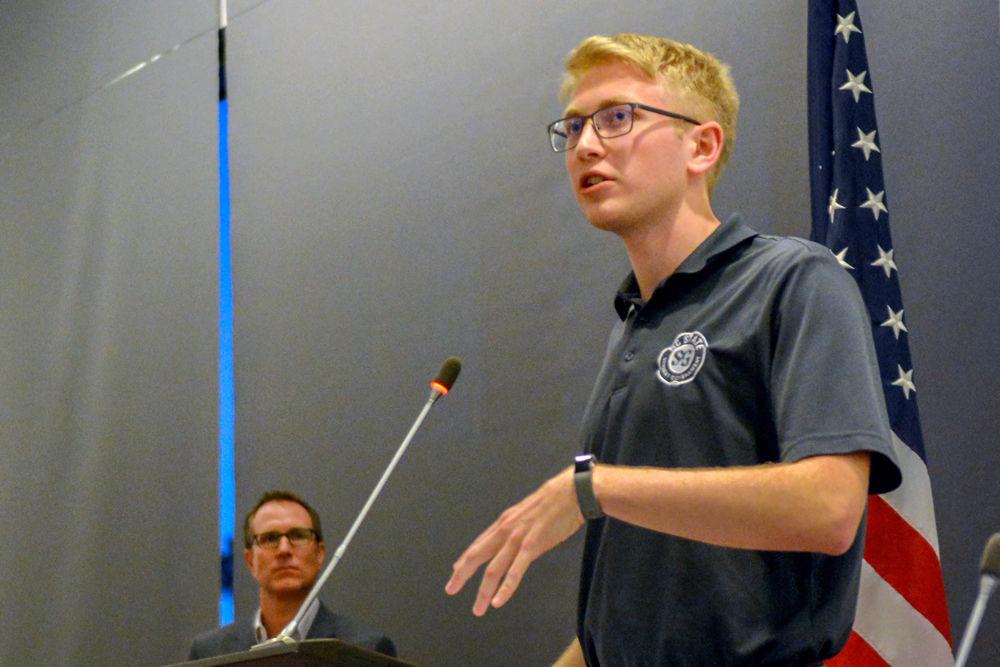The UNC Association of Student Governments (ASG) is an organization that has been representing college students in the state of North Carolina for 48 years. It represents all 17 UNC System campuses across North Carolina.
The role of the ASG president is to be the voice for college students at the UNC Board of Governors. The newly elected president for the 2019-2020 school year is Adam Schmidt, a third-year studying civil engineering and former NC State Student Senate president.
“There is definitely an advocacy piece, because NC State is a part of the UNC System, and so there are policies set at the UNC System level,” Schmidt said. “Recommendations from the NC State campus sometimes have to go up to the Board of Governors level; things like student fees and tuition increase recommendations.”
Schmidt was sworn in at the Association of Student Governments business meeting on April 13 at North Carolina Central University.
“As the president of the Association of Student Governments, I’ll be the student member of the UNC Board of Governors,” Schmidt said. “I will work a lot with student body presidents to push out information that is happening at the Board of Governors level and listen to issues that are occurring on their campuses.”
ASG has a strategic plan which includes three steps: establish a reputation of professional, transparent and accountable leadership, facilitate development and collaboration for and between campus student governments, and implement lasting programs and initiatives that will serve the students of the UNC System.
The ASG advisor is Kim Mitchell, who works at the UNC System office and acts as a leader to help the students in ASG in different roles.
“The key word is ‘help’ them run the organization,” Mitchell said. “I deal with a lot of logistics, as far as helping organize the meetings and the logistics of the students being able to travel. On the back end, I do all of the paperwork in order to get the students reimbursed.
During the year, ASG legislation tackled issues that have been impacting students on several UNC System campuses.
“The legislation that was brought up was everything from transgender housing to like this past meeting, there was a piece of legislation brought from Western Carolina that was looking at the need to have psychiatrists available to students on campus,” Mitchell said.
ASG can also act as a resource for students that are seeking funding for different projects, as they can request financial grants of up to $3,000 on their website.
Students are likely to receive funding if their projects coincide with one of ASG’s five missions: campus innovation, diversity initiatives, voter mobilization, sustainability projects or UNC System advocacy. These grant requests are reviewed at their monthly business meetings.
“There’s several thousand dollars the association gives out to students who submit grant requests from across the system, and NC State has submitted a number this year,” Schmidt said. “They range from helping student groups put on their events to making capital improvements on campus to kind of everything in between.”
Additionally, an important initiative for ASG has been voter mobilization. They not only encourage students to vote in local and national elections, but to be involved and informed in politics that affect them as college students and citizens in the community.
On their website, ASG has links that allow students to register to vote and list students’ nearest polling locations.
ASG has provided opportunities for college students to drive initiatives on campuses throughout N.C. and will continue to live out its mission as a student-led organization.








